Leaders and Heroes 2: The Arts
William F. Woo (1936-2006)
William Franklin Woo was born in Shanghai to an American mother and Chinese father who had met at the University of Missouri School of Journalism. Woo and his mother left China in 1946 and re-settled in Kansas City. After graduating from KU, Bill, as he was known by his co-workers, worked at the Kansas City Times until 1962. Bill then joined the St. Louis Post-Dispatch, eventually landing on the editorial floor, where he ended up heading the editorial section before being named chief Editor in 1986.
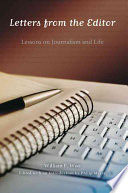
Woo, W. F. (2007). Letters from the editor: Lessons on journalism and life. Philip Meyer, ed. Columbia: University of Missouri Press. Cover. PN 4733 .W66 2007
“When it came my turn, I disagreed. No, I said, we’re in the news business. I said we were in the business of judgment, of discretion, of making informed decisions on what to publish. We were not in the business of spewing out undifferentiated information, like water from a garden hose.”
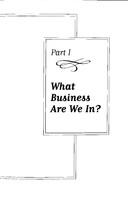
Woo, W. F. (2007). Letters from the editor: Lessons on journalism and life. Philip Meyer, ed. Columbia: University of Missouri Press. PN 4733 .W66 2007
“When it came my turn, I disagreed. No, I said, we’re in the news business. I said we were in the business of judgment, of discretion, of making informed decisions on what to publish. We were not in the business of spewing out undifferentiated information, like water from a garden hose.”
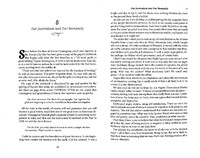
Woo, W. F. (2007). Letters from the editor: Lessons on journalism and life. Philip Meyer, ed. Columbia: University of Missouri Press. pp 26-27. PN 4733 .W66 2007
“When it came my turn, I disagreed. No, I said, we’re in the news business. I said we were in the business of judgment, of discretion, of making informed decisions on what to publish. We were not in the business of spewing out undifferentiated information, like water from a garden hose.”
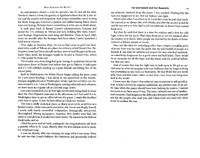
Woo, W. F. (2007). Letters from the editor: Lessons on journalism and life. Philip Meyer, ed. Columbia: University of Missouri Press. pp 28-29. PN 4733 .W66 2007
“When it came my turn, I disagreed. No, I said, we’re in the news business. I said we were in the business of judgment, of discretion, of making informed decisions on what to publish. We were not in the business of spewing out undifferentiated information, like water from a garden hose.”
Woo was the first Chinese American man to run a major U.S. news outlet. In fact, he was the first professional journalist and the first non-Pulitzer family member to have editorial control over the Post-Dispatch. He was editor of the paper from 1986 to 1996, when he was also a member of Eliot Chapel in Kirkwood, Missouri. Woo later taught journalism at Stanford University. This collection of his essays, Letters from the Editor: Lessons on Journalism and life, was published posthumously from the University of Missouri Press in 2007.
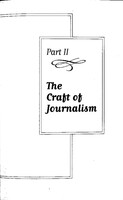
Woo, W. F. (2007). Letters from the editor: Lessons on journalism and life. Philip Meyer, ed. Columbia: University of Missouri Press. PN 4733 .W66 2007
"We see stories about appeals made to the "international community" instead of to the world. We see stories about various issues affecting the African American community. Now there are certain issues that may affect all [B]lack Americans or African Americans, in which case, why not just say that? Otherwise it suggests a homogeneity of interests or economic or social class that simply doesn't exist."
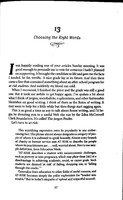
Woo, W. F. (2007). Letters from the editor: Lessons on journalism and life. Philip Meyer, ed. Columbia: University of Missouri Press. pp 57. PN 4733 .W66 2007
"We see stories about appeals made to the "international community" instead of to the world. We see stories about various issues affecting the African American community. Now there are certain issues that may affect all [B]lack Americans or African Americans, in which case, why not just say that? Otherwise it suggests a homogeneity of interests or economic or social class that simply doesn't exist."
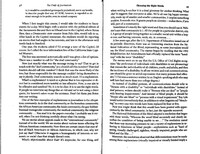
Woo, W. F. (2007). Letters from the editor: Lessons on journalism and life. Philip Meyer, ed. Columbia: University of Missouri Press. pp 58-59. PN 4733 .W66 2007
"We see stories about appeals made to the "international community" instead of to the world. We see stories about various issues affecting the African American community. Now there are certain issues that may affect all [B]lack Americans or African Americans, in which case, why not just say that? Otherwise it suggests a homogeneity of interests or economic or social class that simply doesn't exist."
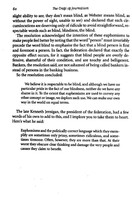
Woo, W. F. (2007). Letters from the editor: Lessons on journalism and life. Philip Meyer, ed. Columbia: University of Missouri Press. pp 60. PN 4733 .W66 2007
"We see stories about appeals made to the "international community" instead of to the world. We see stories about various issues affecting the African American community. Now there are certain issues that may affect all [B]lack Americans or African Americans, in which case, why not just say that? Otherwise it suggests a homogeneity of interests or economic or social class that simply doesn't exist."
Woo was deeply committed to the moral imperitive of journalism. His introspection and willingness to learn comes through quite clearly in his essays to his students. He is witty, precise, and unflinching in his writing. As he states, "[n]early 2,500 years ago, Sun Tzu, the Chinese military philosopher, addressed the importance of self-knowledge. If you know the enemy and know yourself, he wrote, you need not fear the result of a hundred battles. But if you know neither yourself nor the enemy, you will lose every time."
Lessons from the editor has three sections: "What business are we in?"; "The craft of journalism"; "The obligations of journalism." Each section on this page has a representative essay alongside, exemplefying the purpose of journalism, which Woo believed was a public trust, essential to a functioning and sustainable democracy.
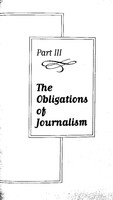
Woo, W. F. (2007). Letters from the editor: Lessons on journalism and life. Philip Meyer, ed. Columbia: University of Missouri Press. PN 4733 .W66 2007
"If we wish others to stop sterotyping us, then it also behooves us not to sterotype ourselves, as the journalists at the AAJA meeting did. If we wish others to put aside racism, then we ought not to imagine that we can be racist about ourselves without demeaning consequences. People will not be valued, in other words, unless they first value themselves."
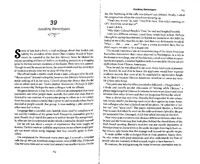
Woo, W. F. (2007). Letters from the editor: Lessons on journalism and life. Philip Meyer, ed. Columbia: University of Missouri Press. pp 164-165. PN 4733 .W66 2007
"If we wish others to stop sterotyping us, then it also behooves us not to sterotype ourselves, as the journalists at the AAJA meeting did. If we wish others to put aside racism, then we ought not to imagine that we can be racist about ourselves without demeaning consequences. People will not be valued, in other words, unless they first value themselves."
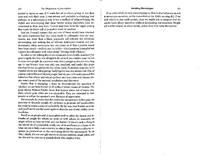
Woo, W. F. (2007). Letters from the editor: Lessons on journalism and life. Philip Meyer, ed. Columbia: University of Missouri Press. pp 166-167. PN 4733 .W66 2007
"If we wish others to stop sterotyping us, then it also behooves us not to sterotype ourselves, as the journalists at the AAJA meeting did. If we wish others to put aside racism, then we ought not to imagine that we can be racist about ourselves without demeaning consequences. People will not be valued, in other words, unless they first value themselves."
Bill Woo was a finalist in 3 separate categories of Pulitzer Prize in Journalism at various times in his life. He was also often on the Pulitzer Prize jury. The last essay included in Lessons from the editor is the final commentary he wrote for the Post-Dispatch in 1996, "The time has come to say Good-bye."
We close with Woo's words on social and cultural changes:
"Finally, journalism is scarcely the only public institution that has been challenged. Churches, universities, the law, corporations, government: All are shaken by doubts from without and within. Efforts to reform the media are unlikely to succeed without similar activities directed at other institutions central to American life."